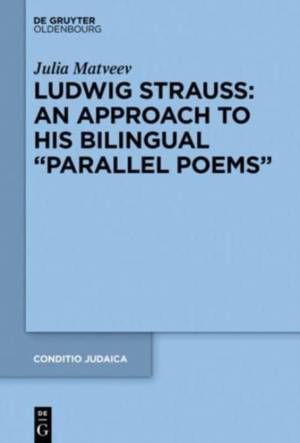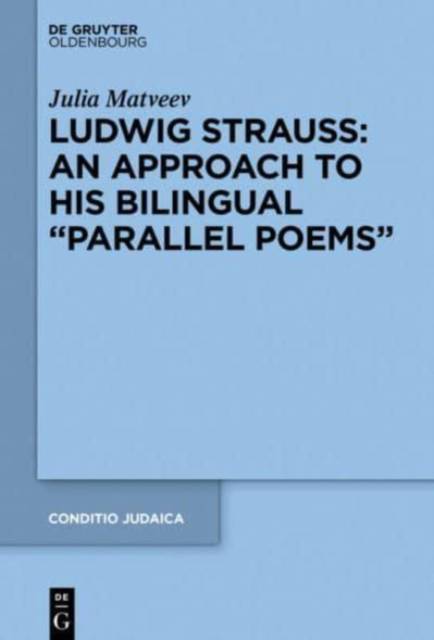
- Afhalen na 1 uur in een winkel met voorraad
- Gratis thuislevering in België vanaf € 30
- Ruim aanbod met 7 miljoen producten
- Afhalen na 1 uur in een winkel met voorraad
- Gratis thuislevering in België vanaf € 30
- Ruim aanbod met 7 miljoen producten
Omschrijving
This book is devoted to the study of the bilingual "parallel poems" of Ludwig Strauss (Aachen 1892 ˗ Jerusalem 1953) created between 1934 and 1952 in Palestine/Israel and which exist in two variants, a Hebrew and a German version, one of which is the original and the other a self-translation. The aim of this study is to compare the versions and their interpretation based on Strauss's theoretical essays on poetry and translation, his political writings and works of literary criticism. Special attention is paid to Strauss's concept (linked with the idea of messianic redemption) of poetry as a "fore-image" of a future true community of men and as "the earthly expression of the Absolute" directed at interpreting divine revelation and its "translation" into human language. In examining Strauss's experiments with self-translation, by which he aimed at establishing a dialogue between languages, and between people and nations, this study considers the two processes of translation: from divine speech into human language and from one human language into another.
Specificaties
Betrokkenen
- Auteur(s):
- Uitgeverij:
Inhoud
- Aantal bladzijden:
- 236
- Taal:
- Engels
- Reeks:
- Reeksnummer:
- nr. 93
Eigenschappen
- Productcode (EAN):
- 9783110587500
- Verschijningsdatum:
- 6/08/2018
- Uitvoering:
- Hardcover
- Formaat:
- Genaaid
- Afmetingen:
- 156 mm x 234 mm
- Gewicht:
- 544 g

Alleen bij Standaard Boekhandel
Beoordelingen
We publiceren alleen reviews die voldoen aan de voorwaarden voor reviews. Bekijk onze voorwaarden voor reviews.











